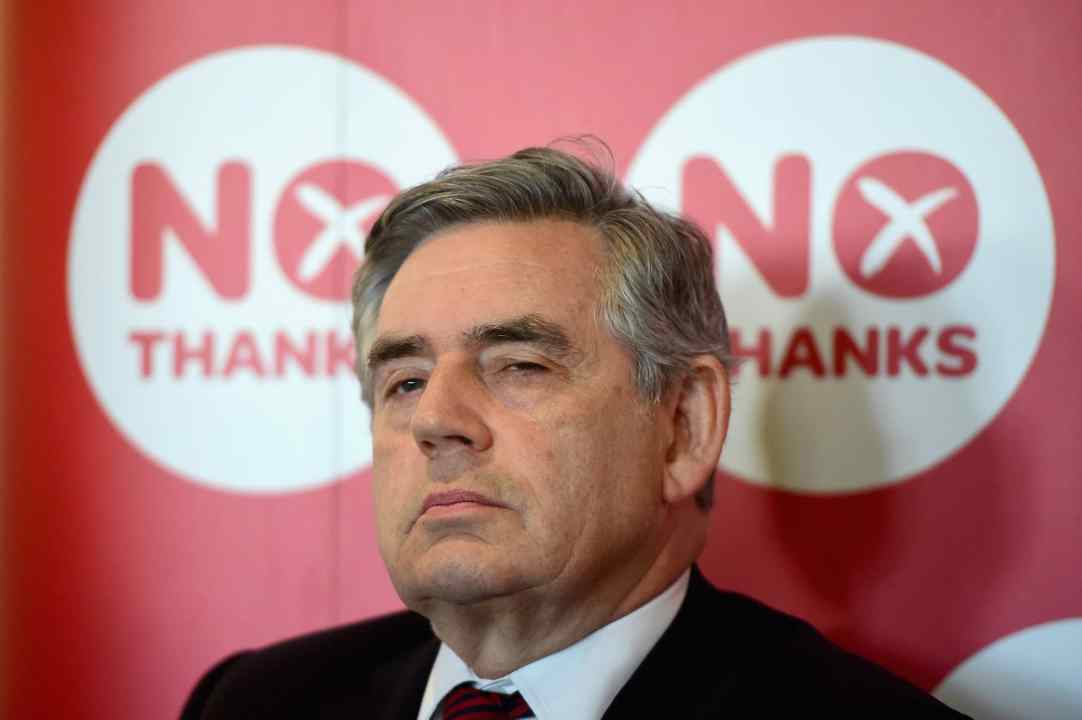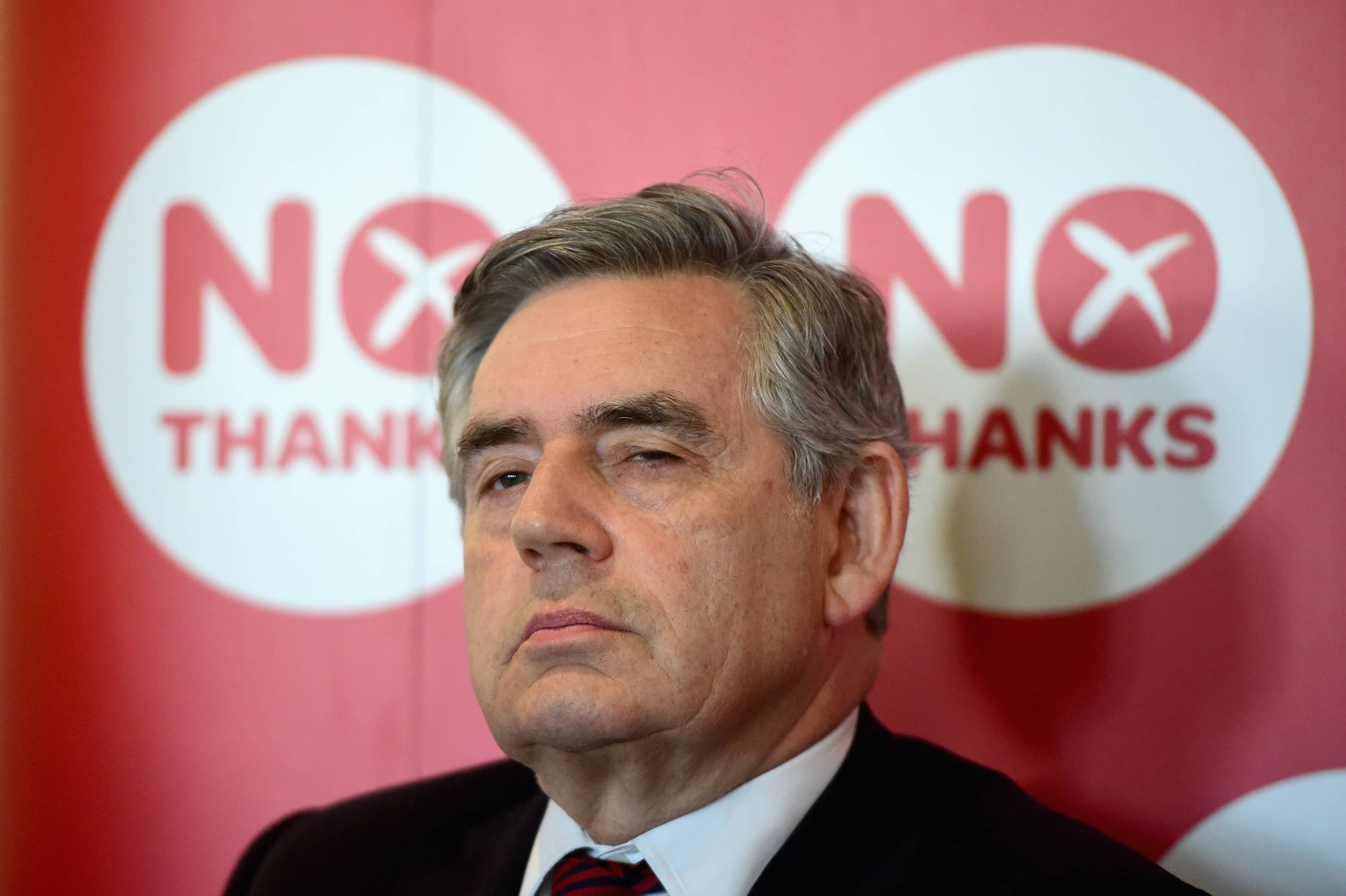Gordon Brown is demanding Parliament be recalled for an emergency budget. By October, he says, quoting a study he commissioned from the University of Loughborough, half the population could be living in fuel poverty. ‘Not enough thinking is being done about the major social crisis,’ he told Radio Four’s The World at One on Monday. The former Chancellor and Prime Minister does, of course, have every right to make what representations he wishes to the government, and no-one can call him a hypocrite for wanting the Chancellor and MPs to sacrifice their summer holidays for an emergency budget. His first holiday as PM, in 2007, famously lasted half a day before he found an excuse – a minor outbreak of foot and mouth – to return to Downing Street.
But it is worth recalling Brown’s own record in government, and how it feeds into the economic situation in which we find ourselves today. Brown was our longest-serving Chancellor of modern times, spending over 10 years at No. 11 between May 1997 and June 2007, and remained heavily involved in economic policy until he lost the 2010 general election.
First, the good bit. In his 10 years as chancellor Britain enjoyed the second fastest growth in GDP per capita of any G7 nation, and did not suffer a single quarter of negative growth – not even when the US briefly fell into recession after 9/11. That did change somewhat after he left No. 11 and took up residence next door. Indeed, Britain went on to suffer what was then the deepest recession since the 1930s. Brown and his ministers always refuted any suggestion that this was their fault (although they had gratefully accepted praise for the long period of unbroken growth); it was a worldwide recession, they argued, caused by a financial crisis which began in the US. Actually, the data suggests Britain suffered a slightly-deeper recession than some other G7 countries, but let’s not split hairs – Britain’s economy would have shrunk whoever was in Downing Street at the time.
As the sun continued to shine, he suddenly stopped fixing the roof and took an axe to it instead
Brown’s real failure was to allow the public deficit to explode – and to allow the housing market to run out of control, leading to a painful crash in 2008/09. Remarkably, these two things ran directly contrary to his famous mantra: ‘an end to boom and bust’ and to his ‘golden rule’ that over the economic cycle the government would only borrow to invest and that current spending would be covered by revenue from taxation.
For his first five years as Chancellor, he seemed to obey his golden rule. For three financial years in a row he ran a surplus, allowing him to reduce government debt. He really did, as he promised, seemed to be fixing the roof while the sun was shining. But, as the sun continued to shine, he suddenly stopped fixing the roof and took an axe to it instead. Between 2002/03 and 2007/08 he ran deficits of between £30 billion and £50 billion. They may have seemed manageable at the time, but the economy was growing fast and so, according to any reasonable definition of Brown’s golden rule, the government should have been balancing the books. Brown himself kept arguing that he wasn’t breaching the rule by stretching his definition of the economic cycle – and by changing his definition of what constituted investment as opposed to current expenditure.
As his predecessor-but-one as Chancellor, Norman Lamont, could have warned him, if you are going to run any sort of deficit during the boom times, you are going to end up will a severe deficit when you find yourself deep in recession. By 2009/10, Brown’s government was borrowing £158 billion, and government debt swelled to over 60 percent of GDP. The public finances have never really recovered. In spite of years of ‘austerity’, no government has succeeded in balancing the books since.
As for an end to boom and bust in the housing market, forget it. Brown presided over the biggest housing book in history, doing little to arrest the surge in prices.
Indeed, he helped fuel the boom by switching the Bank of England’s inflation target from the Retail Prices Index excluding mortgage interest (RPIX), which had minimal input from housing costs, to the Consumer Prices Index (CPI) which excluded owner-occupied housing costs altogether. It left a legacy of affordability problems which have never been resolved. The rate of home-ownership peaked in 2003 and has never since again reach those heights.
It would of course be absurd to blame all the current government’s problems on Gordon Brown, but some of the structural problems in the economy – high government debt and high house price inflation – can certainly be traced back to his time in office.








Comments